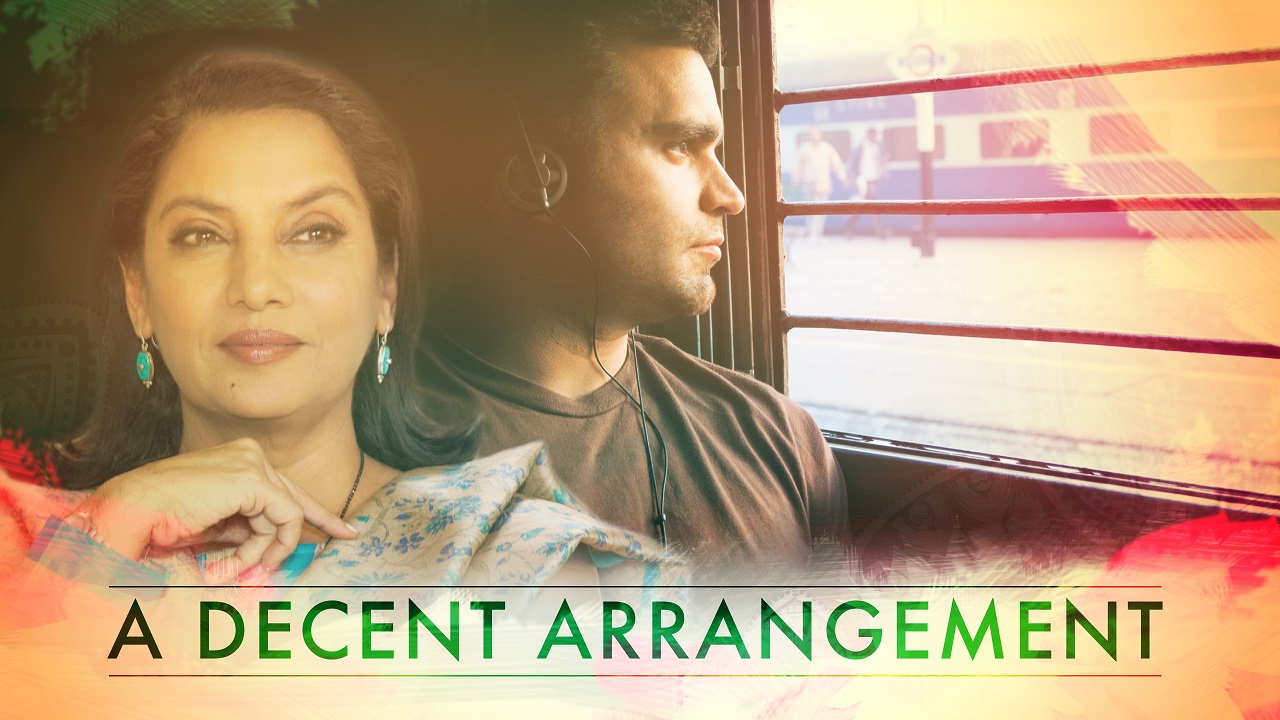
A Decent Arrangement
A Decent Arrangement makes a gentle effort at the clash of civilizations, between the West and the East, in a frankly underlooked underbelly of the Orient – India – until recently; that is, until the wild success of Slumdog Millionaire. To the provincial American, it could be heard in the murmurs of business news that India possesses its own duplication of China’s enormous growth in wealth; granted, India Herself, because she lacks a central commanding economy like China, is slower to move at the same economic alacrity; though, ironically that has been a blessing in disguise, as the central planners in Beijing have themselves created a house of cards and empty, illusionary creations in their real estate markets.
Regardless, the point is that the Celebration of independence in the West comes to be confronted in the narrative when the protagonist returns to his parents’ homeland in search of a bride. And if chopsticks are the meager representation of the Far East to the Western Mind, the arranged marriage must be the equivalent in South Asia. Ostensibly, it seems so slavish, so barbaric a ritual. Indeed, it espouses that one of the most – if not the most – intimate decisions a person can make in his her or life, in building a bond and creating a social unit ex nihilo, as birthing a family into being is this very act, cannot be decided by the person who is most affected and most in control of this process. To the quote enlightened self-interest that has taken center stage in Western culture for the last two centuries, this seems beyond perplexing; yet this same culture, which is reeking of nihilism now, has evacuated its comprehension and deference to, eloquently stated tradition.
The film is a paraphrase of the contact made by the Western man bride-hunting with the oddities of the inheritance of an act of being a society with as rich a legacy, and arguably more so than the Chinese. For the South Asian, the Indian has a vast reservoir of symbols and myths and social conduct, unchallenged despite the greatest threat it ever faced being the onslaught of Islam’s conquest, not to mention the Alexandrian campaign who also could not vanquish the culture. Yes, tradition can be an encumbrance, as I have outlined elsewhere, but it provides turn-key value and meaning to a life, preempting a swath of individuals for turning inwardly idolatrous when the outside word appears a meaningless void. Tradition, in other words, provides a human being with a semblance of purpose and happiness, without the individual requiring to self-construct these values for himself.
To be sure, the protagonist in A Decent Arrangement is using this ancient support system as a crutch; he admits as much to a wandering Western woman he encounters when he mentions the undercurrent of anxiety he experienced by having to attend five weddings in the last year. The social pressures of the convention, in other words, prompted him to partake in tradition. It was, more or less, salvation for him, something he ironically could choose to elect to participate in, rather than have it forced onto him. No doubt there are Indian-Americans who have tradition cajoled, but here we have the ideal blend of an individual choosing to embrace his ancestry, instead of involuntarily complying; yet his choice is still consumerist more or less. It only serves in quelling his social anxiety; he does not see the value in creating a family, in creating something that will love him and which is beyond himself. In short, creating love.
His shortsightedness, and his decision at the end of the film signify the disease that the Western tradition has developed. With tradition, there is a symbolic expression of participating in a grander order, of one that is necessarily above the self. To treat it at face value is to still blindingly deny that the ends of a single man are not the highest significance in the entire world. It is to deny that there is a real transcendence.

